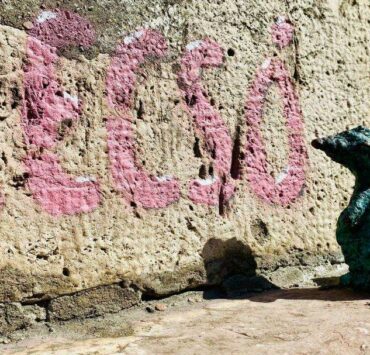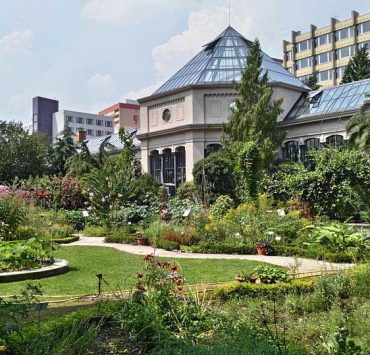As with a move to any new country, there are many things you need to know about living in Budapest. The internet has a variety of guides for the incipient expat, and the sponsors of this publication, Inter Relocation, also offer a wide range of services for the incoming foreigner.
It would be difficult to get into too much detail here about all the things you need to know, but we’ll try and touch on a few of the basic areas, just to give you an idea of what to expect. All costs and other information are current as of January 2019.
General Information
Budapest is home to approximately 1.7 million people in an area of 525.2 km², larger than Bucharest, Vienna or Prague. The life expectancy of Budapest residents is on average 76 years. There are roughly 52% females and 48% males.
Since the regime change in the early 1990s, there has been a growing number of expat communities in Budapest. Depending on your country of origin, you will very likely find expats from your own country to meet.
Living in Budapest
Living in Budapest is not the same as living in Bristol, England, or Boston, Massachusetts (USA). You will have an obvious advantage if you speak Hungarian or maybe German, which is Hungary’s second language, although English is rapidly catching up as one of the other most popular languages spoken here. In fact, a great many residents under the age of 40 or so now speak English as their second language.
If you talk to long-term expats who have lived in Budapest for a while, you’ll find they are nearly all satisfied with their choice of city. They like the food, the restaurants, the prices, and the cityscape. There are also the shops, the walking opportunities, and the atmosphere, not to mention the general feeling of safety one gets in this good-sized city! Plus, as a member of the European Union, smoking is no longer allowed inside public places.
A bejegyzés megtekintése az Instagramon
Hungarian Currency
Even after joining the European Union, Hungary decided to continue to use its own currency, the Hungarian forint, written as “Ft” or HUF. Some international shops and real estate agencies might also list their prices in euro, but watch out for the exchange rate. An easy-to-remember rule is that, as of November 2018, 1000 HUF is roughly the equivalent of around 3 euro, or $3.50 US dollars, or 2.73 British pounds.
Although most places accept international credit and debit cards, it’s always good to have some cash on you. If you need to buy tickets for public transport, for example, the 20,000 HUF note might be too big, so if you can, break the note at a shop before you travel.
In addition to the cash exchange booths scattered throughout the city, there are many ATMs around Budapest, some of which dispense EURO alongside the local currency.
A bejegyzés megtekintése az Instagramon
Infrastructure in Budapest
Infrastructure in Budapest is great, and you most certainly don’t need a car in the city. In fact, it’s really not convenient to own a car here, as you have to pay for the car park, which is around 22,000–44,000 HUF per month, depending on your location. If you decide to buy a car in Hungary, the full insurance and related costs (road tax) shouldn’t be more than 73,000 HUF per year.
Buses, trains, trams, and subways are all reliable and run on time. The government is slowly but surely upgrading the city’s metro system, and even the stations that look outdated are generally safe. A monthly BKV pass for all modes of transport runs 9,500 HUF. But Budapest is a walker’s city.
It’s a good way to save some money, exercise, and stay fit. Most expats walk everywhere and enjoy the feeling of freedom and exploration they get while strolling down the city’s boulevards and side streets. If you do need a car, rentals are available at reasonable rates. In recent years, the city has also installed the Budapest Bicycle system (BuBi) to help people get around even faster.
You can also take taxis if you need to go out and want to drink (Hungary has a zero-tolerance drinking-and-driving policy). Tram 4/6 runs 24/7 and covers most of central Budapest if you need to rely on public transport to get home in the wee hours of the morning. Just note that the controllers even check tickets during the night, so be sure to have your ticket or pass on you at all times.
A bejegyzés megtekintése az Instagramon
Budapest Accommodation
Finding a flat in Budapest these days might not be as easy as it once was. The high demand for rentals has pushed prices up to where accommodations are now often comparable to other Central European cities.
No longer is there a wide range of apartments for a low price. The best and easiest way to find a flat is to contact several real estate agents who will help you locate what you want. The agent gets his/her commission from the owner; as a result, most owners are only willing to rent long-term, so expect to sign a contract for at least one year.
Another option is to join a few Facebook groups for expats, where you can find daily rental offers. Search for “rent in Budapest,” and you will find several really good groups. Join them and check them daily. You can then message the estate agent or owner directly. Send them a list of all your requirements, and they will send you recommendations.
If you haven’t already arranged for a flat, it’s easy these days to rent an Airbnb when you arrive and start searching for your permanent living space.
A bejegyzés megtekintése az Instagramon
Cost of living in Budapest
OK, now for the most important item: money! Budapest has long had a reputation for being an affordable city, but beware! Budapest is not all that cheap any longer. However, Budapest has an almost 55% lower cost of living than New York City, USA. In general, a single person can live nicely in Budapest for around 200,000-250,000 HUF per month, not including rent.
A two-bedroom apartment in a central location and in good condition starts around 260,000-300,000 HUF. The better the location, the newer the appliances, and the larger the space, the more you can expect to pay. In the advertisements, normally all the costs are clearly stated. One unusual extra item is the “common cost.”
Depending on the building, it’s roughly around 16,000 HUF per month. This covers the bin collection and recycling and also the cleaning and the electricity in the common areas. The newer or higher-rent blocks usually have higher common costs. For example, a flat in the beautiful Avenue Gardens on Andrássy Street has a monthly common cost of above 48,000 HUF! This cost includes, however, access to a 24/7 concierge service, spa, pool, and gym.
When you view a flat, make sure to double-check all the costs involved.
Housing costs
On top of the rent and common cost, you will almost always have to pay for your own electricity, gas, and water. These are separate bills given to you by the landlord or the agency. Expect anywhere from 37,000 HUF to 55,000 HUF per month. Winter gas heating costs alone can sometimes hit 30,000 HUF per month.
When you move in, you usually need to put down two months deposit and one month’s rent in advance. Make sure you check everything when you move in and adjust your contract as needed. Take pictures of the flat and appliances for when you check out to ensure you get all your deposit back.
A bejegyzés megtekintése az Instagramon
Grocery Markets
Budapest has a wide variety of local markets, small shops, and large supermarkets. If you have a car, you can drive to the outskirts and shop in hypermarkets. Alternatively, pretty much all districts have their own market (piac, in Hungarian), which is a good way to support the local communities and get cheaper, fresher produce. Average food costs will probably run around 20,000 HUF for two people for several days.
Eating Out
The alternative to dining at home, of course, is taking advantage of the many, many wonderful restaurants, cafes, bistros, and bars in the city. Avoid main touristy places, as a set “traditional” menu is around 6,000 HUF per person. Smaller vegan restaurants will run you about 3600 HUF for a three-course meal for two people. That’s 1800 HUF per person for a delicious soup, main, and cake!
Bars are also still pretty cheap, with beers costing roughly 700 HUF for a large glass. Of course, if you buy them from the supermarket, prices will be even lower. Hungarian sparkling wine costs around 1100 HUF per bottle, and a good bottle of wine starts from as little as 1500 HUF.
There are lots of bakeries scattered throughout Budapest, so you can buy fresh bread every day. You can find almost any variety of bread, ranging from the usual sliced white bread to the special whole grain loaves. There are also lots of Hungarian treats, like the amazing Budapest lángos, pastries, and cakes. A slice of vegan cake in the city center will cost around 1000 HUF, but the more central you go, the higher the prices.
A bejegyzés megtekintése az Instagramon
Clothing
Clothes and shoes cost roughly the same in Budapest as in pretty much any other capital city in Europe. As with most cities, there are a few expensive streets lined with large international shops and boutiques. A pair of jeans will set you back around 20,000 HUF, and some nice running shoes will be in the 23,000 HUF range.
A bejegyzés megtekintése az Instagramon
Health Insurance and Dental Care
Health insurance for you and your family will probably start around 10,000 HUF a month. If you are an EU citizen, make sure you order your free EHIC card, which covers you for emergency treatment, and carry it with you at all times. An alternative is to pay as you go for private medical treatments.
An acquaintance recently needed a knee MRI and paid around 55,000 HUF. A consultation with a doctor was around 15,000 HUF per session, and blood tests were 16,000 HUF; not too bad, considering it was all private, with no insurance.
Hungarian dental care is world-class and so popular and reasonably priced that there is still a large market in dental tourism from the UK and Ireland. Basically, find a dentist you like and you’re set for the duration.
A FINAL WORD: To compare the cost of living in Budapest to your present city, just check out the Numbeo website.




